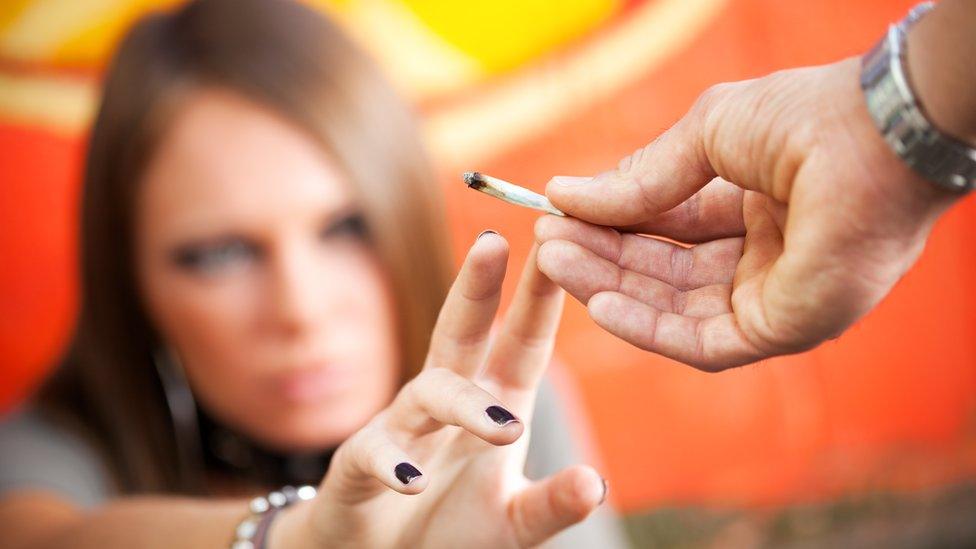Cannabis addiction 'rising among women and over 40s'
- Published

Cannabis addiction is rising among women
Addiction to cannabis is rising among people above the age of 40, and women in particular, according to a study by the University of York.
In the past 10 years, the number of women citing the drug as their sole concern at treatment centres more than doubled, from 471 to 1008.
Researchers blame an increase in the potency of the drug and are calling for more and better treatment.
Cannabis is still however primarily used by young men.
The study analysed figures from Public Health England on people seeking help at drug treatment centres between 2005-06 and 2015-16.
The increase comes despite fewer people using cannabis. The number of people who use it at least once a month has fallen from two million to 1.4 million during the past decade, according to the Crime Survey for England and Wales.
It remains the most popular illegal recreational drug in the UK, however.
What's behind the rise?
Report author Ian Hamilton, a lecturer in addiction at York University, said: "The narrative is that cannabis is a young person's problem.
"That is still the case, but we are seeing a steady and significant rise in addiction problems amongst people over 40, particularly women.
"Cannabis is cheap and widely available. And many women consider it to be benign.
"For many people it will be, but there are a significant number who go on to develop problems.
"Older people were probably used to cannabis at a lower strength. Now, the market is awash with higher potency stuff, often grown domestically.
"In some cases, resin can be nearly three times stronger than drugs on the street in 2005.
"Higher potency cannabis, which is often combined with tobacco, could increase the likelihood of people developing health problems."
Women often think cannabis is harmless
'I thought I would be able to control it'
Jayne and Emma, not their real names, are seeking treatment for cannabis addiction.
Jayne told 大象传媒 Radio 4's Woman's Hour programme: "It was cheap. And I didn't have much money.
"I also thought it wouldn't cause consequences. There's the illusion that you can do everything you need to do as a mother.
"But as I used more and more of it, I found I couldn't go out and take my children to school. I really began to neglect them."
Emma told the programme: "My husband was angry all the time and I felt I was walking on eggshells. My mum was physically abusive when I was younger, and that has always stayed with me. I guess it was easier to be out of it really."
Many people believed cannabis was not addictive, Mr Hamilton said.
"This is a myth. Yet not everyone will experience problems," he said.
"It's a bit like wine - some people can enjoy a glass, others become alcoholics.
"Yet as the strength of the product has increased, it's as if people are moving immediately to the strength-equivalent of a vodka."